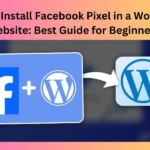In a world where our smartphones have become extensions of ourselves, it’s no surprise that they’re now transforming the landscape of healthcare. Mobile health solutions, or mHealth, are revolutionizing how we access medical information, track our health, and even receive treatment. From fitness apps to remote patient monitoring, the possibilities seem endless. Let’s delve into this fascinating realm and uncover the potential of mobile health solutions to change lives.
Understanding Mobile Health Solutions
Unlocking the Power of Connectivity
At its core, mobile health solutions leverage the connectivity of smartphones and other mobile devices to deliver healthcare services and information. This means that regardless of geographical location or time constraints, individuals can access the resources they need to manage their health effectively. Whether it’s a busy professional checking their blood pressure on their lunch break or a rural patient consulting with a specialist hundreds of miles away, mobile health solutions break down barriers to care.
Empowering Self-Care
One of the most significant advantages of mobile health solutions is their ability to empower individuals to take charge of their own health. With a plethora of health and wellness apps available, users can monitor everything from their daily calorie intake to their sleep patterns. These apps provide valuable insights and feedback, helping users make informed decisions about their lifestyle choices. It’s like having a personal health coach in the palm of your hand.
The Impact of Mobile Health Solutions
Enhancing Accessibility
In many parts of the world, access to quality healthcare is limited. However, mobile health solutions have the potential to bridge this gap by providing virtual consultations and telemedicine services. Rural communities, in particular, stand to benefit from these innovations, as they can now access healthcare professionals without the need for lengthy travel. This not only improves patient outcomes but also reduces healthcare costs and strain on medical facilities.
Improving Patient Engagement
Traditional healthcare settings can often feel impersonal and intimidating. Mobile health solutions, on the other hand, offer a more personalized and engaging experience for patients. Through interactive apps and wearable devices, individuals can actively participate in their own care journey. Whether it’s setting reminders for medication or tracking symptoms, these tools encourage greater patient engagement and adherence to treatment plans.
Challenges and Opportunities
Privacy and Security Concerns
While the potential of mobile health solutions is vast, it’s not without its challenges. Chief among these is the issue of privacy and security. With sensitive medical information being transmitted and stored on mobile devices, there’s a heightened risk of data breaches and unauthorized access. To address this, developers and healthcare providers must prioritize robust encryption protocols and stringent privacy measures to protect patient confidentiality.
Digital Divide
Another challenge is the digital divide, which refers to the gap between those who have access to technology and those who do not. While smartphones are ubiquitous in many parts of the world, there are still marginalized communities with limited access to these devices and the internet. To ensure equitable healthcare access, efforts must be made to bridge this gap through initiatives such as subsidized devices and digital literacy programs.
The Future of Mobile Health Solutions
Innovations on the Horizon
As technology continues to evolve at a rapid pace, so too will mobile health solutions. From AI-powered diagnosis algorithms to virtual reality therapy sessions, the future holds endless possibilities for innovation in healthcare delivery. Wearable devices will become increasingly sophisticated, seamlessly integrating into our daily lives to monitor our health in real-time. The era of personalized medicine is dawning, thanks to the power of mobile technology.
Conclusion
Mobile health solutions are not just a trend; they’re a transformative force in the healthcare industry. By harnessing the power of connectivity and innovation, these solutions have the potential to improve access to care, enhance patient engagement, and ultimately, save lives. As we embrace this digital revolution, let’s ensure that it remains inclusive, equitable, and centered on the needs of patients around the globe.
FAQs
1. Are mobile health apps reliable for monitoring serious medical conditions?
While many mobile health apps offer valuable tools for monitoring health metrics, it’s essential to consult with a healthcare professional for serious medical conditions. These apps can complement traditional care but should not replace professional medical advice.
2. How secure are mobile health apps in terms of protecting my personal information?
Developers of mobile health apps are required to adhere to strict privacy and security regulations to protect user data. Look for apps that are HIPAA-compliant and transparent about their data protection measures.
3. Can mobile health solutions benefit older adults who may not be tech-savvy?
Absolutely! Many mobile health solutions are designed with user-friendly interfaces and intuitive features specifically for older adults. Additionally, caregivers and family members can provide assistance in navigating these technologies.
4. Are mobile health solutions covered by health insurance?
Some health insurance plans may cover certain mobile health services, such as virtual consultations or remote monitoring devices. It’s best to check with your insurance provider to determine coverage options.
5. How can I ensure that the mobile health apps I use are reputable and effective?
Before downloading any mobile health app, research the developer, read user reviews, and look for endorsements from reputable healthcare organizations. Additionally, consult with your healthcare provider to ensure that the app aligns with your health goals and needs.















